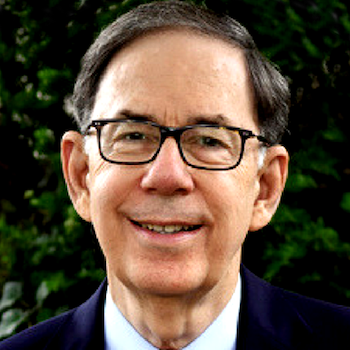Back to series


Fleshly Christianity?
Click here to open a Print - Friendly PDF
One of the most serious problems in the church today is what was once called “carnal Christianity” or, more accurately, “fleshly Christianity.” If the phrase fleshly Christianity sounds like a jarring contradiction, that’s because it is. As we have seen in previous articles in Knowing & Doing, the Bible teaches that “the flesh” is one of the greatest enemies of a true Christian. “The flesh” is, of course, concerned not only with sins of sensuality but with the whole of our lives lived apart from God in this fallen world; it includes pride and greed and envy and idolatries of all sorts. Surely, one would think, a true Christian would seek to forsake the flesh and earnestly pursue a life of obedient discipleship. Sadly, however, that does not always happen.
Fleshly Christianity is widespread in the American church and well documented by researchers like the Gallup Organization and the Barna Group. Summarizing their research findings in a 2004 report, the Barna Group said, “The ultimate aim of belief in Jesus is not simply to possess divergent theological ideas but to become a transformed person. These statistics highlight the fact that millions of people who rely on Jesus Christ for their eternal destiny have problems translating their religious beliefs into action beyond Sunday mornings.”1
What is a “fleshly Christian”? First, let’s clarify what a fleshly Christian is not. A fleshly Christian is not a true believer who struggles with the flesh and is seeking to root out and forsake areas of remaining sin from his or her old life. That is normal. Rather, fleshly Christians are true believers who continue to live largely in the flesh after conversion and are not seeking to forsake their sins and move toward maturity. Significant areas of sin still dominate their lives, but they are content to continue as they are. As a result, they remain spiritual infants, whose lives show all too little of the transforming power of Christ.
 Why is fleshly Christianity a serious problem? On a personal level, persisting in our former sins grieves the indwelling Holy Spirit, who alone can empower us to overcome them. By grieving the Spirit, we cause Him to withdraw the sense of His presence, and we block His empowerment until we repent. We also render ourselves spiritually dull and unable to grasp deeper teaching—teaching that could help us mature. In such a weakened state, we become much more vulnerable to other sins gaining power in our lives. Impaired fellowship with the Holy Spirit also makes our relationship with Christ seem more distant and less real. In this condition, we can begin to rationalize away our disobedience, become hardened in our hearts, and doubt our salvation. No longer sober minded and watchful, we are easy prey for the devil, who, like a roaring lion, is always prowling about seeking someone to devour (1 Pet. 5:8).
Why is fleshly Christianity a serious problem? On a personal level, persisting in our former sins grieves the indwelling Holy Spirit, who alone can empower us to overcome them. By grieving the Spirit, we cause Him to withdraw the sense of His presence, and we block His empowerment until we repent. We also render ourselves spiritually dull and unable to grasp deeper teaching—teaching that could help us mature. In such a weakened state, we become much more vulnerable to other sins gaining power in our lives. Impaired fellowship with the Holy Spirit also makes our relationship with Christ seem more distant and less real. In this condition, we can begin to rationalize away our disobedience, become hardened in our hearts, and doubt our salvation. No longer sober minded and watchful, we are easy prey for the devil, who, like a roaring lion, is always prowling about seeking someone to devour (1 Pet. 5:8).
On a public level, fleshly Christianity reinforces the common perception that faith in Christ makes little or no positive difference in a person’s life. It feeds the increasingly common idea that Christians are just hypocrites. Quite naturally, this leads nonbelievers to assume that Christian faith makes little no beneficial contribution to society. Thus, instead of glorifying Christ, the fleshly Christian dishonors Him, undermines the plausibility of the gospel, and turns people away from Him. This sad spectacle is only magnified when the case is not an individual believer but an entire congregation.
The Corinithians Fall Short
Fleshly Christianity is not new. The apostle Paul had to address it in the Corinthian church. This congregation, which took pride in having an abundance of spiritual gifts, was beset by a number of serious sins, including spiritual pride, lawsuits against one another, sexual sin, lack of love, abuse of the Lord’s Supper, and division.
Clearly many of the Corinthians were living in the grip of the flesh, not the fullness of the Holy Spirit. Consequently their personal lives were a mess, and their public witness was a scandal. Although they had initially experienced some basic changes, those changes were overshadowed by sinful attitudes and behaviors characteristic of their former lives. The Corinthians gave little evidence of the love, joy, peace, patience, kindness, goodness, faithfulness, and self-control that are characteristic of the new life empowered by the Holy Spirit.
In his first letter to the church at Corinth, Paul opens with the customary introductory words of the day, followed by thanks to God for His grace in their lives. Then he immediately turns to the divisions in the church, strongly appealing for unity:
I appeal to you, brothers, by the name of our Lord Jesus Christ, that all of you agree, and that there be no divisions among you, but that you be united in the same mind and the same judgment. For it has been reported to me by Chloe’s people that there is quarreling among you, my brothers. What I mean is that each one of you says, “I follow Paul,” or “I follow Apollos,” or “I follow Cephas,” or “I follow Christ.” (1 Cor. 1:10–12)2
Then in chapter 3, he strongly reproves the Corinthians for two sins of the flesh that lay behind their conflict: jealousy and strife. These sins had given rise to the divisive, party-spirit that threatened to destroy the church and its credibility before the watching world. Their jealousy and strife were behaviors typical of the old self and the way they lived before coming to salvation in Christ. Paul cites these two sins as evidence of their failure to grow up spiritually and describes them as “people of the flesh, as infants in Christ” (1 Cor. 3:1). He will deal with a number of other sins as the letter progresses.
Given these and other serious sins that were common in the church, we might be excused for wondering if the Corinthians had ever been truly converted. But Paul clearly affirms that they were born again people, who had been enriched in speech and knowledge and who had all the gifts of the Holy Spirit operating through them (1 Cor. 1:4–9). Precisely because they were genuine believers, who did manifest evidence of new life, he was so deeply dismayed to see them continuing to live like nonbelievers in certain respects. The following paraphrase from Roy Ciampa and Brian Rossner clarifies
Paul’s perspective:
Paul chides them: “Brothers and sisters, in looking at your situation I must make an additional distinction to that between the natural and the spiritual (1 Cor. 2:14–15). At the time of my initial work among you several years ago, the time of your conversion and baby Christian status, I could not address you as spiritually mature people, but I was able to speak only as I would speak to mere infants in Christ, as those who have the Spirit and thus a capacity for welcoming the truth and experiencing spiritual growth, but as yet having limited experience of it. At that time, and for that stage, I gave you milk to drink, food for babies, that is, elementary spiritual truths for baby Christians. When I was with you those eighteen months (Acts 18:11), I did not give you solid food, food for adults, that is, the wisdom of God (cf. 1 Cor. 2:6–7), that is, deeper spiritual truth for mature Christians. This was because you were not yet ready for solid food. But now some four or five years later you are still not ready!”3
 Paul was a realist and understood human nature. He did not expect instant perfection, but he did expect steady growth. The normal pattern of spiritual development was to progress along a continuum from baby believer to mature believer. The Corinthians’ prolonged period of infancy—fleshly living—was not normal and deserved no sympathy or indulgence. It was an intolerable situation that must change. They had believed the gospel and received the grace of God; they had made a good start. But they had not continued to grow in grace or at least not very much. They were spiritually stagnant, and Paul could still feed them only “milk, not solid food” (1 Cor. 3:2). Like runners in a marathon, they had begun the race, but something had soon gone wrong. They had slowed down to a walk and were now wandering along the race track, distracted first by one thing then by another.
Paul was a realist and understood human nature. He did not expect instant perfection, but he did expect steady growth. The normal pattern of spiritual development was to progress along a continuum from baby believer to mature believer. The Corinthians’ prolonged period of infancy—fleshly living—was not normal and deserved no sympathy or indulgence. It was an intolerable situation that must change. They had believed the gospel and received the grace of God; they had made a good start. But they had not continued to grow in grace or at least not very much. They were spiritually stagnant, and Paul could still feed them only “milk, not solid food” (1 Cor. 3:2). Like runners in a marathon, they had begun the race, but something had soon gone wrong. They had slowed down to a walk and were now wandering along the race track, distracted first by one thing then by another.
How did this situation develop? The Corinthians’ problems were traceable to a failure of church leaders and church members to take the Word of God and other means of grace seriously. As a result, they had not been earnest about putting to death the deeds of the old nature and walking in newness of life.
Paul puts them on notice that their disobedience was a culpable matter that would result in significant consequences unless they repented and began to walk in a manner worthy of the Lord. One consequence would be the forfeiture of the rewards God will bestow on those who have served Him well in His church—those who have built on the foundation of Jesus Christ (1 Cor. 3:10–15). That would be a terrible loss for any believer. But Paul goes on to warn the Corinthians of even more serious consequences if they continue in their sins and cause a destructive split in the congregation: “Do you not know that you [plural] are God’s temple and that God’s Spirit dwells in you? If anyone destroys God’s temple, God will destroy him. For God’s temple is holy, and you are that temple” (1 Cor. 3:16-–7). This is a very strong and frightening warning.
Our Pursuit of Holiness
How do Paul’s instructions to the believers at Corinth have relevance for us today? What are our personal and corporate expressions of sin? What can we do corporately and personally to break out of these patterns of fleshly living? First, church leaders need to make the lifelong pursuit of holiness a priority in their personal lives. Their example is crucial for those they lead. If a picture is worth a thousand words, a living example is worth far more! As Robert Murray M’Cheyne once said, “My people’s greatest need is my personal holiness.” Leaders must seek to be to others what they ask them to become. This doesn’t mean leaders must be perfect, but it does mean they must earnestly seek to grow in holy living, that is, in increasing Christlikeness (Phil. 3:12–16). Church leaders must follow the example of Jesus, and His servants Peter, Paul, John, and James, and make the subject of holiness a priority in their preaching and teaching. One of the clearest facts of the Bible is that God calls His children to forsake their sins and pursue holiness. To cite but one of many, many verses, Peter says to church leaders and members alike,
As obedient children, do not be conformed to the passions of your former ignorance, but as he who called you is holy, you also be holy in all your conduct, since it is written, “You shall be holy, for I am holy.” And if you call on him as Father who judges impartially according to each one’s deeds, conduct yourselves with fear throughout the time of your exile. (1 Pet. 1:14–17)
The importance of holiness is underscored even more powerfully by the writer to the Hebrews when he urges his readers to, “Strive for . . . the holiness without which no one will see the Lord” (Heb. 12:14). Holiness is not optional, and on the day of judgment church leaders will have to give an account to God, not of how large their congregation became or how many programs they ran or how large their budget was, but rather of how faithful they were in shepherding those under their care to become holy
(Heb. 13:17).
Second, individual believers, while praying for their church leaders to fulfill their God-appointed duties, must also take personal responsibility for their own growth in grace and holiness. As the passages above make clear, holiness is not simply for church leaders, nor is it an “extra” for those who are “more serious about their faith.” These exhortations are addressed to everyone in the congregation because the pursuit of holiness is a basic requirement for every believer. God is holy, and He calls every child He adopts into His family to become holy, that is, to have His image restored in them. Our growth in holiness is God’s preparation of us now, in our brief earthly pilgrimage, for life with Him in the world to come. Those who are God’s true children desire holiness, and with the Spirit’s help, they can make extraordinary progress through persistent, earnest effort. Those efforts will reap great rewards for us when, like church leaders, we give an account of our lives to God on judgment day (Rom. 14:10–12; 2 Cor. 5:8–10).
Practical Steps
 You may be wondering, what practical steps can I take to grow in holiness? It needs to be said at the outset that good intentions are not enough. We must be earnest and vigorous in our pursuit of holiness. I would suggest beginning with this simple prayer: Father, do whatever it takes to deliver me from my sins and make me holy. An important next step would be to ask God to open our eyes to His holiness and to increase in us the fear and reverence of Him that is so crucial to growth in holiness. The reverent fear of God is largely unknown among believers today because, amazingly, we think it is an Old Testament doctrine that is no longer applicable to New Testament believers. The next step is to ask God to convict us of our particular sins and to deepen our repentance.
You may be wondering, what practical steps can I take to grow in holiness? It needs to be said at the outset that good intentions are not enough. We must be earnest and vigorous in our pursuit of holiness. I would suggest beginning with this simple prayer: Father, do whatever it takes to deliver me from my sins and make me holy. An important next step would be to ask God to open our eyes to His holiness and to increase in us the fear and reverence of Him that is so crucial to growth in holiness. The reverent fear of God is largely unknown among believers today because, amazingly, we think it is an Old Testament doctrine that is no longer applicable to New Testament believers. The next step is to ask God to convict us of our particular sins and to deepen our repentance.
Many of us, whether from ignorance, worldliness, or demonic deception, seem to be largely unaware of our sins and of the great importance of confessing and repenting of them daily. Few of us have any idea of how shallow our repentance is, and that this leads to our repeating the same old sins over and over. When particular sins or patterns of sin become clear to us, we must work vigorously with the Spirit’s help to put them to death. If done with a right attitude of heart, these steps will have a happy effect: Jesus and His work on the cross for us will become much more precious to us and increase our love for Him and our desire to obey. The necessity of walking daily in the Spirit’s fullness will become obvious. And in the wake of deeper repentance will come greater joy! These steps can be taken alone or with one or two like-minded friends.
It will be very helpful to follow up these fundamental prayers for holiness. I suggest you take an exhaustive concordance, like Strong’s or Young’s (or use convenient computer software), and find the New Testament passages that include the words holy” or holiness and obey or obedience and fear of God. Prayerfully ponder them, asking the Holy Spirit to open your understanding and show how they apply to your life. For helpful articles on these words, go to the New Bible Dictionary or Tyndale Bible Dictionary. You may also want to read (or re-ead) the article on “Freedom from the Flesh” in the previous issue of Knowing & Doing. Once you are aware of what the Bible teaches on these topics, you will might profit greatly from Jerry Bridges’s Respectable Sins: Confronting the Sins We Tolerate, which is very helpful for identifying and dealing with some of the most common besetting sins.
You would do well to follow that book with Bridges’s The Fruitful Life: The Overflow of God’s Love through You, an exceptionally good volume on growing in the fruit of the Holy Spirit. Both have study guides for small groups, a venue for growing deeper with Christ and other believers. For more depth, consider Rediscovering Holiness, by J.I. Packer, and Holiness, by J.C. Ryle. Above all, immerse yourself in the Scripture, purposing to know more fully our holy God and His grace and truth in Jesus Christ. Plead with God by His Spirit to illumine your mind and change your heart.
Consider becoming part of an accountability group with a few friends. In some cases, the advice of a wise, godly elder (male or female) or couple in the church can be very helpful. Having said that, some areas of temptation and struggle require the insight and guidance of a well-trained and experienced pastor. Don’t tell yourself that your pastor is too busy to help you deal with significant spiritual issues. That is a fundamental part of a pastor’s ministry.
There is great reward in forsaking the flesh and pursuing a life of holiness and righteousness. May we follow the example of the apostle Paul, who at his life’s end was able to say, “I have fought the good fight, I have finished the race, I have kept the faith. Henceforth, there is laid up for me the crown of righteousness, which the Lord, the righteous judge, will award to me on that Day, and not only to me, but to all who have loved his appearing” (2 Tim. 4:7–8).
| Notes 1. Barna Group, “Faith Has a Limited Effect on Most People’s Behavior,” Barna Report, May 24, 2004. 2. Scripture quotations are from the English Standard Version. Italics added. 3. Roy Ciampa and Brian Rossner, The First Letter to the Corinthians (Grand Rapids: Eerdmans, 2010), 140. |
|||

Thomas A. Tarrants
Author, President Emeritus, CSLI Thomas A. Tarrants is President Emeritus of the C.S. Lewis Institute. After serving twelve years as president and nine years as vice President, he retired from his position as Vice President for Ministry and Director, Washington Area Fellows Program, with CSLI in June 2019. He holds a Masters of Divinity Degree, as well as a Doctor of Ministry Degree in Christian Spirituality. Tom is an ordained minister in the Evangelical Church Alliance and a member of the Evangelical Theological Society. He spends his time writing, mentoring, consulting and traveling. His life story is told in Consumed by Hate, Redeemed by Love, published by Thomas Nelson Publishers. COPYRIGHT: This publication is published by C.S. Lewis Institute; 8001 Braddock Road, Suite 301; Springfield, VA 22151. Portions of the publication may be reproduced for noncommercial, local church or ministry use without prior permission. Electronic copies of the PDF files may be duplicated and transmitted via e-mail for personal and church use. Articles may not be modified without prior written permission of the Institute. For questions, contact the Institute: 703.914.5602 or email us.
COPYRIGHT: This publication is published by C.S. Lewis Institute; 8001 Braddock Road, Suite 301; Springfield, VA 22151. Portions of the publication may be reproduced for noncommercial, local church or ministry use without prior permission. Electronic copies of the PDF files may be duplicated and transmitted via e-mail for personal and church use. Articles may not be modified without prior written permission of the Institute. For questions, contact the Institute: 703.914.5602 or email us.
-
Recent Podcasts
A Welcome Change in Apologetics
by Randy Newman, Aimee Riegert on April 19, 2024We’re burdened for our friends who don’t know...Read More
-
Questions That Matter Podcast – Samuel James and Digital Liturgies
by Samuel James, Randy Newman on April 19, 2024
-
The Side B Stories – Dr. James Tour’s story
by Jana Harmon, James Tour on April 12, 2024
-
Recent Publications
Isn’t Morality Relative?
by Christopher L. Reese on April 1, 2024It is widely accepted in the Western world...Read More
-
Do Muslims and Christians Worship the Same God?
by Andy Bannister on March 1, 2024
-
Artificial Intelligence and Its Impacts on Humanity
by John Lennox on February 13, 2024
0
All Booked
0.00
All Booked
0.00
All Booked
20599
GLOBAL EVENT: 2024 Study Tour of C.S. Lewis’s Belfast & Oxford
https://www.cslewisinstitute.org/?event=global-event-2023-study-tour-of-c-s-lewis-belfast-oxford-2&event_date=2024-06-22®=1
https://www.paypal.com/cgi-bin/webscr
2024-06-22

Next coming event
Days
Hours
Minutes
Seconds
GLOBAL EVENT: 2024 Study Tour of C.S. Lewis’s Belfast & Oxford
On June 22, 2024 at 12:00 pmat Belfast, Northern Ireland & Oxford, EnglandCategories
Speakers

Thomas A. Tarrants
Author, President Emeritus, CSLI
Team Members






